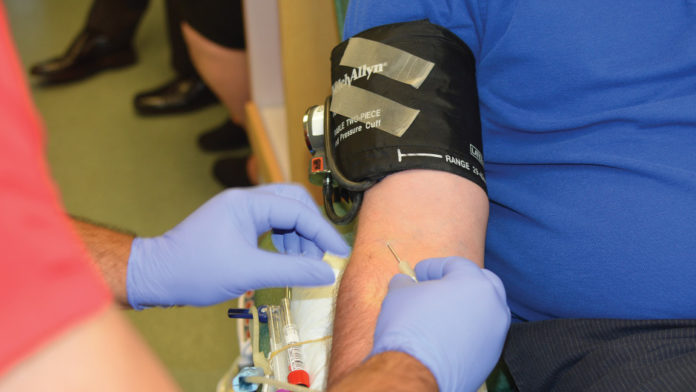We often think fresher is better. To some extent this is true – pharmaceuticals come with an expiration date, and no one wants to drink spoiled milk. But when it comes to blood transfusion, the “best before” date might be later than we previously thought.
Researchers at McMaster University studied the effect of blood storage time on mortality after transfusion. The study, published in New England Journal of Medicine, randomly split patients at six hospitals in four countries (including Canada) into two groups to receive blood that was stored for an average of either 13 days or 23 days. The results of the study showed no significant difference in longevity between patients regardless of how long the blood had been stored.
“Our study provides strong evidence that transfusion of fresh blood does not improve patient outcomes, and this should reassure clinicians that fresher is not better,” said Nancy Heddle, lead author, Research Director of the McMaster Center for Transfusion Research, and Professor emeritus at McMaster University, in an interview with the McMaster Faculty of Health Sciences.
Blood suppliers are happy to hear that they can now stock up, but blood shortages are still likely to occur. According to Canadian Blood Services (CBS), Ontario alone needs at least 6,000 new blood donors. But with recently announced changes to donor regulations, giving blood just became a little bit harder.
Now women donors have to wait at least 12 weeks between donations instead of eight and male donors have to pass a stricter hemoglobin test. The new regulations require minimum hemoglobin levels of 130 grams per liter, which is five grams higher than before. Although this means blood quality will be higher, donors will not be able to provide as much blood as before.
There are many patients with life threatening conditions who need urgent blood transfusions. Mark Donnison, the CBS Vice-President of donor relations, kindly asks people to “step forward to fill this gap by giving blood and encouraging friends and family to make giving a part of their lives.”
Currently, the maximum shelf life for red blood cells is 42 days. Hopefully, Heddle’s study and others to follow will prolong blood’s “best before” date to negate some of the impacts of stricter blood donation regulations.








































